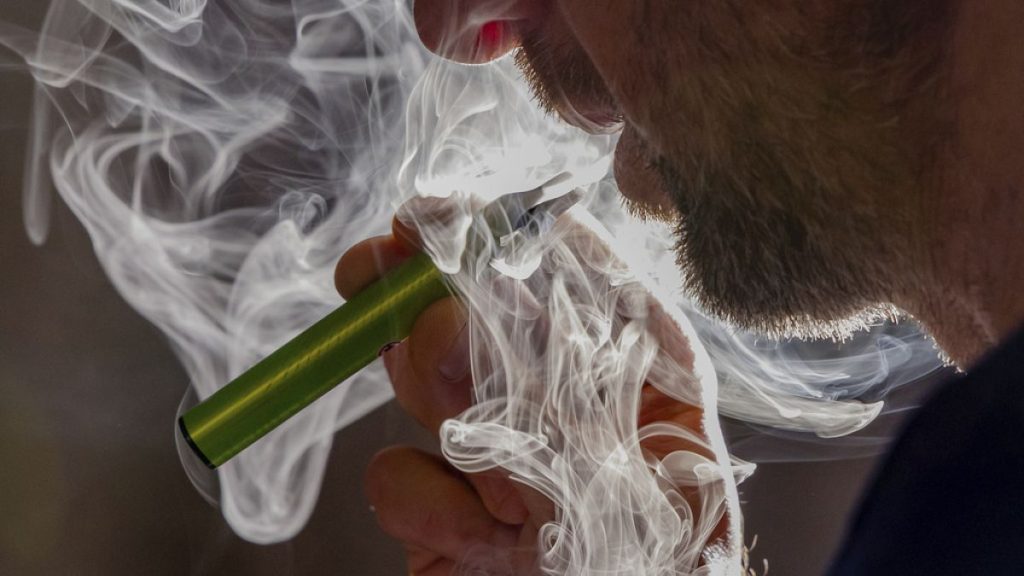Belgium’s groundbreaking decision to ban disposable vapes, effective January 1, 2024, marks a significant step in public health policy within the European Union. Driven by concerns over the escalating health risks and environmental impact of these products, the ban aims to curb the growing trend of nicotine addiction, particularly among young people. Health Minister Frank Vandenbroucke has highlighted the accessibility and appeal of disposable vapes as a gateway to nicotine addiction, emphasizing that these devices are explicitly designed to attract new users, especially teenagers. The ban reflects a growing global awareness surrounding the dangers of nicotine addiction and the environmental consequences of disposable products.
The primary impetus behind Belgium’s ban rests on the alarming rise in teenage vaping fueled by the affordability and availability of disposable e-cigarettes. While some argue that vaping can be a harm-reduction tool for smokers attempting to quit traditional cigarettes, the Belgian government focuses on the inherent addictiveness of nicotine and the potential health risks associated with its consumption. Disposable vapes, often brightly colored and flavored to attract younger demographics, have become a gateway to nicotine addiction, hooking a new generation on a substance known to have detrimental health consequences. This focus on preventative health measures aims to curtail the long-term impact of nicotine addiction on the health system and the overall well-being of its citizens, particularly the youth.
Beyond the immediate health concerns, the environmental impact of disposable vapes is a crucial factor driving Belgium’s legislative action. The single-use nature of these devices results in significant waste, contributing to the growing problem of electronic waste pollution. Disposable vapes contain plastic components, batteries, and electronic circuits, all of which pose environmental hazards when discarded improperly. Furthermore, the chemical residues within the discarded vapes leach into the environment, adding another layer of ecological concern. The ban aligns with the broader global movement towards sustainable practices and responsible consumption, aiming to reduce the environmental burden of disposable products.
The ban on disposable vapes in Belgium signifies the country’s proactive stance on public health within the European Union, with Health Minister Vandenbroucke urging the European Commission to update and modernize its tobacco legislation. Belgium’s decision serves as a potential catalyst for similar measures across the EU, setting a precedent for other member states to consider stricter regulations on vaping products. The move highlights the growing awareness of the potential harms associated with vaping, particularly the alarming rise in teenage vaping, and the urgent need for comprehensive regulation to protect public health and the environment. Vandenbroucke’s call for EU-wide action underscores the importance of collaborative efforts to address this emerging public health challenge.
While the ban is projected to impact the vaping industry, there is also a recognition that alternative, more sustainable vaping products are available. Reusable vapes, with refillable cartridges and rechargeable batteries, offer a less wasteful alternative to disposable options. The shift towards reusable devices could contribute to a reduction in electronic waste and promote more responsible consumption patterns. This transition may also encourage users to be more mindful of their nicotine consumption, as refilling e-liquid requires more conscious engagement than simply discarding a used disposable vape. The transition may also influence the vaping industry to innovate and develop more sustainable and less harmful products.
In conclusion, Belgium’s ban on disposable vapes is a decisive measure that addresses both public health and environmental concerns. By targeting these devices specifically, the government aims to curb the rising tide of nicotine addiction among teenagers, mitigate the environmental impact of disposable electronic waste, and promote a shift towards more sustainable alternatives. This pioneering decision within the EU sets a precedent for other nations to consider similar actions and represents a significant step towards establishing more comprehensive regulations on vaping products, ultimately safeguarding public health and the environment. Belgium’s commitment to proactive health policies could influence a broader movement towards stricter regulation of vaping products and encourage the development of more sustainable alternatives within the industry.














